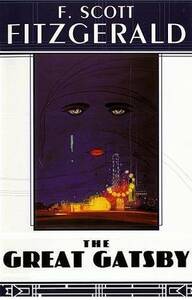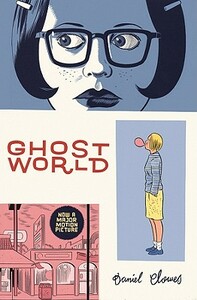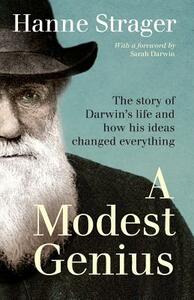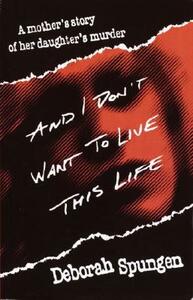You need to sign in or sign up before continuing.
Take a photo of a barcode or cover
kevin_shepherd's Reviews (563)
There is nothing I could possibly say about this novel that hasn't already been said in countless summaries and reviews. I'll simply join the lovefest by proclaiming that this surprisingly short, easy read is worthy of all the hype.
Letting Schrodinger's Cat out of the proverbial bag...
"If the cat appears at one moment in one part of the room, and at another in another part, it is natural to suppose that it has moved from the one to the other, passing over a series of intermediate positions. But if it is merely a set of sense-data, it cannot have ever been in any place where I did not see it; thus we shall have to suppose that it did not exist at all while I was not looking, but suddenly sprang into being in a new place."
Still with me?
"If the cat exists whether I see it or not, we can understand from our own experience how it gets hungry between one meal and the next; but if it does not exist when I am not seeing it, it seems odd that appetite should grow during non-existence as fast as during existence. And if the cat consists only of sense-data, it cannot be hungry..."
Okay, I have to assume that Bertrand himself didn't have a cat because, if he had, he would have seen the obvious flaw in his analogy. If I feed my cat and never for an instant take my fucking eyes off of him, he will, within 35-40 seconds, be hungry again! You cannot use cat hunger as a measure of time, they are furry (but lovable) little black holes.
Feline fallacies aside, I would not recommend this book to anyone with just a passing interest in philosophy. This is philosophy 201, and though it is a short read it is not necessarily an easy read. There are passages that will surely weed out anyone who lacks the onus to grapple with the tenets of existentialism.
Is any of this useful? Does mental juggling, trying to keep seven balls in the air at the same time (one each for Plato, Descartes, Spinoza, Leibniz, Berkeley, Hume, and Kant) doing anything to further the understanding of our place in the universe?
Russell points out that true philosophy is found only in the realm of the unanswerable questions, for as soon as definite answers become possible, the subject ceases to be philosophical and becomes science. Psychology, Physics, Astrophysics, and even Mathematics all had their origins in Philosophy.
Russell said it best...
"Philosophy, though unable to tell us with certainty what is the true answer to the doubts which it raises, is able to suggest many possibilities which enlarge our thoughts and free them from the tyranny of custom. Thus, while diminishing our feeling of certainty as to what things are, it greatly increases our knowledge as to what they may be; it removes the somewhat arrogant dogmatism of those who have never travelled into the region of liberating doubt, and it keeps alive our sense of wonder by showing familiar things in an unfamiliar aspect."
Now go feed the cat.
"If the cat appears at one moment in one part of the room, and at another in another part, it is natural to suppose that it has moved from the one to the other, passing over a series of intermediate positions. But if it is merely a set of sense-data, it cannot have ever been in any place where I did not see it; thus we shall have to suppose that it did not exist at all while I was not looking, but suddenly sprang into being in a new place."
Still with me?
"If the cat exists whether I see it or not, we can understand from our own experience how it gets hungry between one meal and the next; but if it does not exist when I am not seeing it, it seems odd that appetite should grow during non-existence as fast as during existence. And if the cat consists only of sense-data, it cannot be hungry..."
Okay, I have to assume that Bertrand himself didn't have a cat because, if he had, he would have seen the obvious flaw in his analogy. If I feed my cat and never for an instant take my fucking eyes off of him, he will, within 35-40 seconds, be hungry again! You cannot use cat hunger as a measure of time, they are furry (but lovable) little black holes.
Feline fallacies aside, I would not recommend this book to anyone with just a passing interest in philosophy. This is philosophy 201, and though it is a short read it is not necessarily an easy read. There are passages that will surely weed out anyone who lacks the onus to grapple with the tenets of existentialism.
Is any of this useful? Does mental juggling, trying to keep seven balls in the air at the same time (one each for Plato, Descartes, Spinoza, Leibniz, Berkeley, Hume, and Kant) doing anything to further the understanding of our place in the universe?
Russell points out that true philosophy is found only in the realm of the unanswerable questions, for as soon as definite answers become possible, the subject ceases to be philosophical and becomes science. Psychology, Physics, Astrophysics, and even Mathematics all had their origins in Philosophy.
Russell said it best...
"Philosophy, though unable to tell us with certainty what is the true answer to the doubts which it raises, is able to suggest many possibilities which enlarge our thoughts and free them from the tyranny of custom. Thus, while diminishing our feeling of certainty as to what things are, it greatly increases our knowledge as to what they may be; it removes the somewhat arrogant dogmatism of those who have never travelled into the region of liberating doubt, and it keeps alive our sense of wonder by showing familiar things in an unfamiliar aspect."
Now go feed the cat.
What it is: a near perfect synopsis of 1990's americana with fantastic artwork and a darkly comedic take on teen angst.
What it is not: a female perspective. Enid is the embodiment of an era; a wonderfully-rendered lovable-misfit, but she doesn't quite ring true (and I'm not entirely sure why).
What it is not: a female perspective. Enid is the embodiment of an era; a wonderfully-rendered lovable-misfit, but she doesn't quite ring true (and I'm not entirely sure why).
A well-turned, albeit condensed, biographical view of Charles Darwin and how his ideas have forever altered our perception of the world.
Strager is a biologist and a flat-out fantastic writer. She has a gift for getting to the meat of a matter without all the superfluous academic gobbledygook. This is not a deep, introspective analysis, but rather an entertaining and enlightening overview that should appeal to almost anyone with a curious (and open) mind.
That said, I do have a small issue with her characterization of Charles' father and their relationship. I quote Strager:
• "...scribbling down his memoirs, the words came back to him. "You care for nothing but shooting, dogs, and rat-catching, and you will be a disgrace to yourself and all your family", his father had once yelled at him when he was a boy." (pg 1)
• "...the family resided in a gloomy mansion known as "The Mount"." (pg 1)
• "...his authoritarian father..." (pg 22)
Strager is not the only Darwin biographer to frame his father as something of a tyrant. I see it more often than not in almost everything I read. It may indeed be true, but the evidence, as I see it, just doesn't seem to align with such a harsh conclusion. Robert Darwin was a doctor who was tirelessly attentive to the needs of his patients, there are countless letters that attest to this. He was known to give gifts of food and cash and free medical attention in times of need. He established an "infants' school" at rather great expense to himself, and he made sure that all of his children, especially Charles, were well provided for and would never want for anything.
Yes, Robert Darwin had occasion to yell, 'You'll never amount to anything if you don't change your ways!' Jesus, what parent doesn't say that at some point to every child on the planet? Yes, Robert had serious reservations about Charles sailing to South America on the Beagle, but after seeing the utter disappointment in his Son's eyes, he gave him an opportunity for redress, and ultimately consented. Nay, beyond consent, he paid all his expenses so that Charles was not beholding or obligated to the British Admiralty - his discoveries and collections were his and his alone.
If Robert Darwin's words don't paint a portrait of a loving, caring father, his actions surely speak otherwise.
Strager is a biologist and a flat-out fantastic writer. She has a gift for getting to the meat of a matter without all the superfluous academic gobbledygook. This is not a deep, introspective analysis, but rather an entertaining and enlightening overview that should appeal to almost anyone with a curious (and open) mind.
That said, I do have a small issue with her characterization of Charles' father and their relationship. I quote Strager:
• "...scribbling down his memoirs, the words came back to him. "You care for nothing but shooting, dogs, and rat-catching, and you will be a disgrace to yourself and all your family", his father had once yelled at him when he was a boy." (pg 1)
• "...the family resided in a gloomy mansion known as "The Mount"." (pg 1)
• "...his authoritarian father..." (pg 22)
Strager is not the only Darwin biographer to frame his father as something of a tyrant. I see it more often than not in almost everything I read. It may indeed be true, but the evidence, as I see it, just doesn't seem to align with such a harsh conclusion. Robert Darwin was a doctor who was tirelessly attentive to the needs of his patients, there are countless letters that attest to this. He was known to give gifts of food and cash and free medical attention in times of need. He established an "infants' school" at rather great expense to himself, and he made sure that all of his children, especially Charles, were well provided for and would never want for anything.
Yes, Robert Darwin had occasion to yell, 'You'll never amount to anything if you don't change your ways!' Jesus, what parent doesn't say that at some point to every child on the planet? Yes, Robert had serious reservations about Charles sailing to South America on the Beagle, but after seeing the utter disappointment in his Son's eyes, he gave him an opportunity for redress, and ultimately consented. Nay, beyond consent, he paid all his expenses so that Charles was not beholding or obligated to the British Admiralty - his discoveries and collections were his and his alone.
If Robert Darwin's words don't paint a portrait of a loving, caring father, his actions surely speak otherwise.
'Beautifully illustrated and designed for a broad demographic of just about anyone with even a modicum of scientific curiosity. In fact, there are so many photos, paintings, maps and drawings that one could skip the text entirely and still learn a great deal about the life and times of Charles Darwin, but don't. Van Wyhe knows his stuff. He writes with authority and is quick to dispel many of the myths and inaccuracies that have circulated since Darwin's passing in 1882. His artful melding of science and history makes great reading.
Coyne is direct and no-nonsense. He doesn't get bogged down in the pointless debate of trying to disprove a negative, he simply states what IS and what IS NOT. Evolution is not a belief, it's a science. It's a science supported by 150 years of research and (literally) mountains of evidence. And, like any true science, the timelines and conclusions have been tweaked and recalculated with the introduction of new data.
In the end, everyone will draw their own conclusions. Either the theological narrative of the origin of life is not entirely accurate or the sciences of paleontology, anthropology, astrophysics, genetics and evolutionary biology are bogus and irrelevant.
In the end, everyone will draw their own conclusions. Either the theological narrative of the origin of life is not entirely accurate or the sciences of paleontology, anthropology, astrophysics, genetics and evolutionary biology are bogus and irrelevant.
The Dawkins Sampler
Full spectrum Richard D. with essays, articles, speeches and letters. Dawkins as evolutionary biologist, political activist, advocate for reason, purveyor of knowledge, and slayer of superfluous hogwash and evangelical claptrap.
If you are unfamiliar with Dawkins as a writer, this might be a great place to start. If you are a fan, as I am, this is a front row seat in his proverbial choir. Covering a time span from 1979 (Dawkins at age 38) to 2017 (Dawkins at age 76), there is an admirable consistency of ethical intellectualism and grace at play here - I know of no other author, other than the late, great Christopher Hitchens, that even comes close.
Full spectrum Richard D. with essays, articles, speeches and letters. Dawkins as evolutionary biologist, political activist, advocate for reason, purveyor of knowledge, and slayer of superfluous hogwash and evangelical claptrap.
If you are unfamiliar with Dawkins as a writer, this might be a great place to start. If you are a fan, as I am, this is a front row seat in his proverbial choir. Covering a time span from 1979 (Dawkins at age 38) to 2017 (Dawkins at age 76), there is an admirable consistency of ethical intellectualism and grace at play here - I know of no other author, other than the late, great Christopher Hitchens, that even comes close.
"The female puts her long middle finger of the bottom arm on the right side, straight into the pupik [belly-button] and goes moofky-foofky, and that's how we shtup."
for this my eleven year old self hid this book from my parents!
for this my eleven year old self hid this book from my parents!
Nancy Spungen was the American girlfriend of Sid Vicious, the Sex Pistols’ “guitarist” and “vocalist.” She was murdered in 1978 in a hotel bathroom in New York City. Sid was charged with the crime but he himself died of a drug overdose before his case was ever tried.
As near as I can tell, no one, outside of her family and Sid, liked Nancy. She was widely known as “Nauseating Nancy,” a moniker that no doubt broke the heart of her mother Deborah Spungen. Deborah eventually wrote this book, years after her daughter’s murder, to help set the record straight and to show the world the side of Nancy that no one else knew.
Nancy was Jewish, grew up in Philadelphia, and at 15 was diagnosed with schizophrenia. After being booted out of college, she wound up in London just as the punk rock scene was really taking off. It’s not clear if she was a prostitute or a groupie (or both). At some point she became involved with Sid Vicious. What followed was a lot of drug abuse and domestic violence and antisocial behavior, ending in 1978 when Nancy took a knife to the stomach.
I read this when I was in my twenties and thirty years later I can still remember feeling incredibly sorry for Nancy’s mother. Is there any pain greater than losing a child? And then having to see that child demeaned, degraded and ridiculed in the forum of public opinion? This is Deborah sharing a very private part of herself so that we can all see who her daughter really was, the Nancy she knew before mental illness marshaled her into a world of violence and drugs and public disdain.
As near as I can tell, no one, outside of her family and Sid, liked Nancy. She was widely known as “Nauseating Nancy,” a moniker that no doubt broke the heart of her mother Deborah Spungen. Deborah eventually wrote this book, years after her daughter’s murder, to help set the record straight and to show the world the side of Nancy that no one else knew.
Nancy was Jewish, grew up in Philadelphia, and at 15 was diagnosed with schizophrenia. After being booted out of college, she wound up in London just as the punk rock scene was really taking off. It’s not clear if she was a prostitute or a groupie (or both). At some point she became involved with Sid Vicious. What followed was a lot of drug abuse and domestic violence and antisocial behavior, ending in 1978 when Nancy took a knife to the stomach.
I read this when I was in my twenties and thirty years later I can still remember feeling incredibly sorry for Nancy’s mother. Is there any pain greater than losing a child? And then having to see that child demeaned, degraded and ridiculed in the forum of public opinion? This is Deborah sharing a very private part of herself so that we can all see who her daughter really was, the Nancy she knew before mental illness marshaled her into a world of violence and drugs and public disdain.









